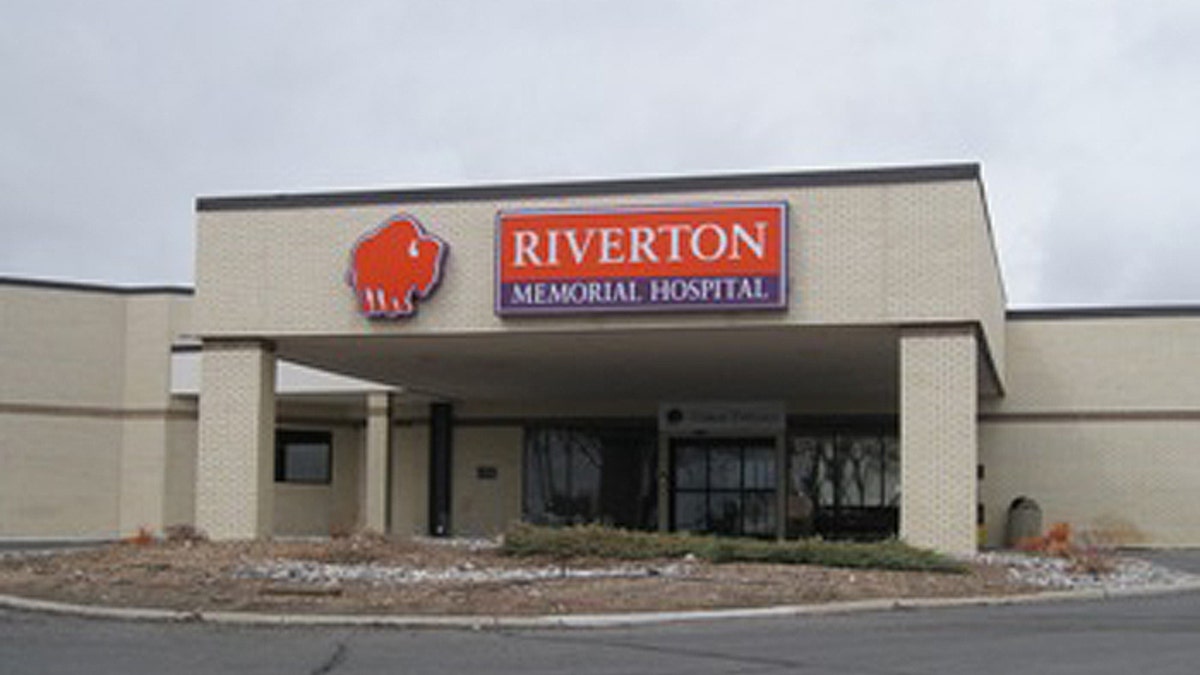
A 2013 EPA ruling that Riverton Memorial Hospital sits on Indian land has thrown a legal wrinkle into a malpractice case.
A standard medical malpractice case has become anything but routine for a Wyoming hospital, whose lawyers say they've been dragged into an unfamiliar tribal court after the federal government deemed 1 million acres that includes the facility's grounds Indian country.
Lawyers defending Riverton Memorial Hospital want the case, which involves a Northern Arapaho woman's claim the hospital failed to detect a gunshot wound that left fragments embedded her brain, moved to a U.S. court.
"This is one of many examples of the troubling consequences of the EPA’s position."
"We are not seeking to deny anyone their legal right to file or litigate any claim," Patrick Murphy, a Casper lawyer representing the hospital, told FoxNews.com. "Rather, we’re seeking to ensure that it is brought before the appropriate court with legal jurisdiction over these types of cases."
But the attorney for Cody Armajo, former Riverton Mayor John Vincent, said there is nothing unusual about trying the case in tribal court, which he said has presided over several prior cases that originated on the disputed territory going back decades.
The case has renewed complaints from state officials about the Environmental Protection Agency's 2013 ruling that more than 1 million acres of land surrounding the Wind River Indian Reservation was Native American land. The property, which includes the 10,000-population city of Riverton, had been regarded as public and private land for more than a century, but the EPA, in researching a claim by the Northern Arapaho Tribe and the Eastern Shoshone tribes, determined the land should not be subject to the Clean Air Act, and had in fact always belonged to the Indians.
"The Riverton Memorial Hospital malpractice lawsuit raises a jurisdictional question," Seth Waggener, spokesman for Wyoming Gov. Matt Mead, told FoxNews.com. "This is one of many examples of the troubling consequences of the EPA’s position."
Wyoming is still fighting the EPA's decision, arguing that a 1905 federal law extinguished the land's reservation status 100 years ago when it opened the area to settlement by non-Indians. On Wednesday, the state attorney general filed a brief in the 10th Circuit Court of Appeals in its case challenging the EPA's declaration expanding the boundaries of the Wind River Indian Reservation.
"Wyoming has long believed that no administrative agency has the authority to alter a state boundary and go against more than 100 years of history and law," Waggener said.

Wyoming Gov. Matt Mead is fighting the EPA decision, and says the hospital's problem is just one of the consequences of it. (AP)
Vincent and Northern Arapaho Tribe spokesman Mark Howell say the tribal court has clear jurisdiction in the case, in which Armajo alleges she was turned out from the emergency room after a cursory examination that missed a bullet wound suffered as she walked on a city street. Vincent disputed that the 1905 law that opened up the land to non-Indians had previously meant the tribal court did not have jurisdiction throughout it, and said prior cases have been heard by the court.
"The suggestion that the tribal court's exercise of jurisdiction over Riverton Memorial Hospital is unprecedented is simply not correct," Vincent said. "The tribal court and many federal court decisions from Wyoming have ruled that the area -- including Riverton -- that was open to non-Indian settlement in 1905 did not change the reservation boundaries."
Vincent cited another malpractice case against Riverton Memorial Hospital that was litigated in tribal court before 2013, a 2002 medical negligence case arising from the wrongful death of a baby at the hospital's emergency room. A federal court judge ruled that the tribal court had jurisdiction in that case, he said.
Richard Brannan, a member of the Northern Arapaho Tribal Council, said last month Riverton Memorial Hospital receives millions of dollars in funding through the Indian Health Service each year for treatment of tribal members.
"This is not the first time that they’ve had to manage claims for medical negligence in tribal court,” Brannan said. He said the Council is confident the hospital will have a fair opportunity to present all its defenses."
The Associated Press contributed to this report.




